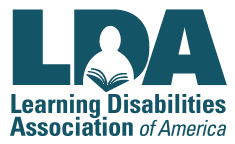
What is a Learning Disability?
Learning disabilities are brain-based processing problems. Sometimes, the way a person’s brain processes information makes it difficult for them to learn basic skills like reading, writing, or math. People with learning disabilities often show a gap between their potential and their actual achievement in school, at work, or in their personal lives. Between 5 and 10 percent of Canadians have LDs.
When we talk about a “Learning Disability”, it is an umbrella term that covers a range of more specific learning disabilities, such as Auditory Processing Disorder or Dyslexia. See below for more information on Specific Learning Disabilities.
What Causes a Learning Disability?
Learning disabilities are not caused by environmental factors such as cultural differences or socio-economic status, although such factors can compound their impact.
Can a Learning Disability be Fixed?
No, a learning disability cannot be cured or fixed; it is present from childhood throughout the lifespan. However, by identifying a learning disability early through a psychoeducational assessment, strategies can be put in place to help the person learn differently, so that they can achieve greater success at home, at school, and in the workplace.
Specific Types of Learning Disabilities
Auditory Processing Disorders (APD)
Central Auditory Processing Disorder is a brain-based condition in which sound coming through the ear is processed in a disrupted way in the brain. People with CAPD have difficulty noticing small differences between sounds in words, and they have difficulty distinguishing between one voice talking (like a teacher or a friend) and background noise (like classroom noises, or the noise of a busy café, for example).
A Language Processing Disorder is a specific type of Auditory Processing Disorder (APD) in which a person has difficulty attaching meaning to groups of sounds that form words or sentences. While an APD affects the interpretation of all sounds coming into the brain, a Language Processing Disorder (LPD) relates only to the processing of language. LPD can affect a person’s ability to expressive themselves verbally or to understand what others are saying.
Dyscalculia
Dyscalculia is a brain-based condition that makes it difficult to understand numbers and math. This can lead to trouble understanding math symbols, memorizing and organizing numbers, telling time, or counting.
Dysgraphia
Dysgraphia brain-based condition that makes fine manual motor tasks difficulty (like handwriting, for example). This can make it difficult to write neatly, spell properly, or to compose a written letter or paper, for example.
Dyslexia
Dyslexia is a brain-based condition that affects reading and related language-based processing skills. This can make it difficult to read quickly and can interfere with spelling, writing, and sometimes speech.
Non-Verbal Learning Disabilities
An NVLD is a brain-based disorder where a person’s verbal skills are much stronger than their motor, visual-spatial, and social skills. This can lead to difficulty interpreting nonverbal cues like facial expressions or body language, and can lead to poor coordination.
Visual Perceptual/Visual Motor Deficit
A Visual Perceptual/Visual Motor Deficit is a brain-based condition where a person has difficulty processing things they see. This can show up in LDs like Dysgraphia or Non-verbal LD, and is characterized by difficulty perceiving small differences between shapes or letters (mixing up letters), holding a pencil too tightly, or poor eye/hand coordination.
Related Conditions
Should I Have my Child Tested for a Learning Disability?
You should have your child complete a psychoeducational assessment for a Learning Disability if they show difficulties in the following areas compared to their age-matched peers:
- Difficulty with reading and/or writing.
- Problems with math skills.
- Difficulty remembering.
- Problems paying attention.
- Trouble following directions.
- Poor coordination.
- Difficulty with concepts related to time.
- Problems staying organized.
It’s normal to experience any combination of feelings of fear, apprehension, or uncertainty when exploring whether your child might have signs of a Learning Disability. Remember, every child develops differently and every person is unique. We all have different ways of being in the world and show different strengths and weaknesses. A Learning Disability is only diagnosed if your child’s symptoms are of a severity that limits or interferes with their functioning.




